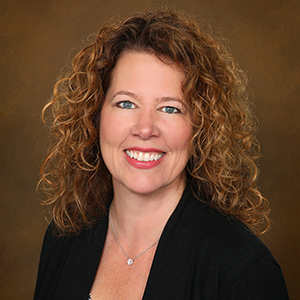The depth and breadth of the research happening across the Department of Surgery at the University of Colorado School of Medicine was on full display in Monday’s eighth annual Research Symposium. Sixteen residents — eight from clinical and health services and eight from basic and translational research — presented papers on topics ranging from salvaging tissue in patients with frostbite to how shock can affect someone with a traumatic brain injury. The event was held virtually due to the pandemic.
“It’s a real opportunity for us to highlight the academic research endeavor and efforts within the Department of Surgery by our faculty, and most importantly by our resident trainees,” says Robert Meguid, MD, MPH, FACS, an associate professor of surgery who oversees the event every year. “As surgeons and clinicians, we spend a lot of our time taking care of patients and doing direct patient care, but as academicians who are engaged in research, this is a critical opportunity for us to highlight all the efforts going on.”
Catching up on the work of fellow residents
Among the residents presenting work in basic and translational science was Anna Gergen, MD, who is in her second year of research after spending two years in clinical care. Gergen, who has a particular interest in cardiothoracic surgery, spoke about her paper “Expression of Adhesion Molecules in a Gastroduodenal Reflux Murine Model,” which proposes a method for preventing esophageal cancer.
“In thoracic surgery you do a lot of esophagectomies for treatment of esophageal cancer, and it’s always an area where we’re trying to innovate because the outcomes are so poor,” she says. “It’s an inflammatory-driven cancer, and our lab has focused on a preventative approach of manipulating inflammatory pathways prior to the cancer occurring.”
In addition to getting to present her own research and field questions from the judges, Gergen appreciated the opportunity to learn more about the research being conducted by her fellow residents.
“These are my colleagues, and we’ve all trudged through the lab time together,” she says. “It was a huge learning experience, but it’s really hard at times. It’s always encouraging to see what all my friends have published and what they’re working on. It’s a good time of year to catch up on all that.”
Different perspectives
Resident Adam Dyas, MD, who presented on his research into how to define and treat high-risk surgical patients at the symposium, says he appreciated the questions Meguid and the other judges asked him after his presentation.
“Some of the answers you already know, just based on the expertise and knowledge you have in your subject matter, but some of the questions are interesting because they give you a different perspective on a way of thinking about it that you may not have even thought about before,” he says.
Dyas, whose work was part of the clinical and health services category, says he especially enjoyed hearing about the research being conducted by his counterparts in basic science.
“Some of it goes way over my head,” he says. “It’s just amazing that they’re able to understand these things and hypothesize and test and develop models that test these outcomes. It’s pretty cool stuff.”
Huge advances in surgery research
This year’s Research Symposium coincides with a pair of related milestones for the Department of Surgery: Research output in the department has more than doubled over the past six years, and this year the department for the first time ever became one of the top 10 highest-funded surgical departments in the country for extramural grants. Meguid hopes to continue to increase funding and eventually move into the top five.
“The general surgery residency program is a five-year clinical program, but three years ago the program added a two-year research requirement as part of the residency,” says Kathleen Tuthill, director of the Office of Education in the Department of Surgery. “The residents join labs or they work with faculty on clinical research. Over the past several years, the different divisions have recruited many academic faculty members who are very interested in research.
The value of research
For Meguid, the Research Symposium is a highlight of each academic year, especially in years like this one where every division and section within the Department of Surgery is represented.
“As academicians, our aim is not only to educate, but also to advance the field we’re engaged in,” he says. “This is really that discussion. It’s the advancement of our discipline in surgery. It’s really an exciting event for me every year, and for a lot of the residents and the faculty who are engaged in this type of research.”
"I am so very proud of the exciting research going on in the Department of Surgery," says Richard Schulick, MD, MBA, chair of the department. "The work presented affirms why our Department of Surgery ranks number nine in the country for research funding from the National Institutes of Health."
Gergen, who will return to clinical practice in July, says the symposium only reinforces the value of the emphasis the department puts on research.
“Research is an inevitable part of all of medicine, and they really train us to think like researchers and surgeons, which I appreciate,” she says. “I think it’s really necessary in the current day of medicine. It adds time to your training, but it’s very valuable to have that time set aside to learn these skills."


.png)


.png)
